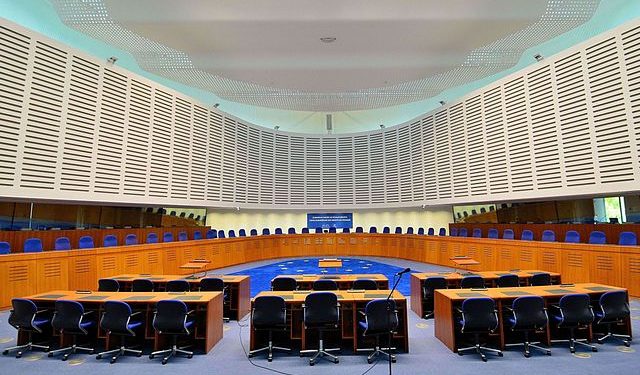European Court’s Anti-Muslim Ruling
In a decision made this October, the European Court of Human Rights (ECHR) has neglected the basic principle of freedom of speech to uphold the “right of others to have their religious feelings protected.” A right many may be surprised to know they had, and for good reason. It is not the government’s place to manage feelings. In this case, offense was taken at the defendant’s use of widely accepted and authentic Islamic scripture to conclude that the Prophet Muhammad may have been pedophilic. The referenced hadiths detail the Prophet’s marriage and subsequent consummation of a nine year-old girl while he was in his fifties.
The ruling stated:
“Defaming the Prophet Muhammad exceeds the permissible limits of freedom of expression.”
This has become the most bigoted and anti-Muslim ruling the ECHR has made. The decision infantilizes Muslims across Europe by labeling them as intolerant, thin-skinned, and incapable of facing criticism. It is patronizing for the ECHR to suggest that Muslims can not handle their own feelings without resorting to violence and that the government must protect those feelings for them.
We can not share the ECHR’s low expectations of the Muslim community, and we must refuse to hold our Muslims neighbors to a lower civil standard.
The way to get Muslims on common ground is by confronting the issue and talking with them. Only a month prior to the ruling, Ex-Muslims of North America (EXMNA) went to ISNA (the largest annual gathering of Muslims in North America) and opened dialogue with a great deal of Muslims who agree that others have the right to criticize their religion.
Muslims can be tolerant and accepting of criticism, but it does not help to silence the conversation by making it illegal.
Suffice to say, the ECHR has failed, in this ruling, to sustain the ideals of the secular body from which it came. People can, and will, be offended by just about anything; it is neither in the court’s business to validate people taking offense, nor to protect them from it.
The court claimed that the defendant’s criticism of Muhammad was “capable of arousing justified indignation,” as though it were under the court’s authority to be the arbiter of emotion – to tell people when they are justified or allowed to be angry.
This ruling itself has stirred “justified indignation” among secularists, among tolerant Muslims, and among those who value freedom of speech. Will the court fine itself to protect their feelings?





